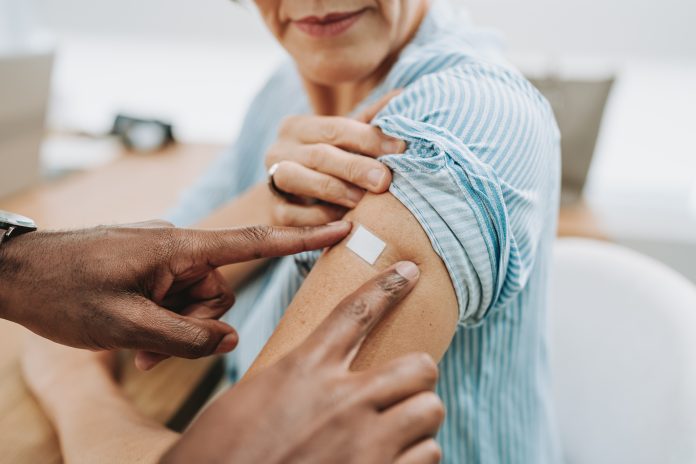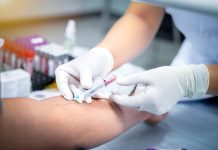An ageing population, rising antimicrobial resistance, and the ongoing threat of infectious and chronic diseases are placing immense pressure on our societies
A shift to a preventative approach is necessary for the efficiency and sustainability of our healthcare systems. Central to this shift is the often-underutilized tool of life-course immunization
Protecting populations from infancy to old age
Routine childhood vaccination is one of the greatest medical success stories, saving four million children every year. Vaccinated children are more likely to go to school, learn, and thrive, with economic benefits that ripple across their communities. However, the benefits of vaccination extend far beyond the early years. New data by the Office of Health Economics (OHE), a globally leading authority on global health economics, demonstrates that adult immunization can deliver socioeconomic returns proportional to childhood immunization programs, returning up to 19 times their initial investment.
Despite this compelling evidence, access to adult vaccination is globally inconsistent, with limited inclusion in routine immunization schedules. Across the European Union, most countries spend less than 0.5% of their healthcare budgets on immunization, with the majority allocated to pediatric programs. This represents a significant missed opportunity to unlock the full value of life-course immunization and ease the strain on our overburdened health systems.
Supporting healthy longevity
The demographic shift towards aging populations makes the case for adult immunization even more urgent. By 2030, one in six people in the world will be aged 60 years or over. Older adults tend to have weaker immune systems and are particularly vulnerable to infectious diseases like influenza, pneumococcal disease, and shingles, which can lead to serious complications and even death. Preventing these diseases through vaccination can significantly improve their quality of life and reduce hospitalization rates, freeing medical resources and alleviating pressure on healthcare workers.
Mitigating the impact of non-communicable diseases
Non-communicable diseases (NCDs), such as cardiovascular diseases, cancer, diabetes, and chronic respiratory conditions, remain the world’s leading causes of death, accounting for nearly three in four deaths globally each year. People living with the most common NCDs are at particularly high risk of serious illness from infectious diseases such as influenza, COVID-19, and respiratory syncytial virus (RSV). We know that influenza increases the risk of heart attack more than ten times in the first seven days after contracting the flu, but flu vaccination can reduce the risk of heart attacks by up to 45%. Protecting people living with NCDs from respiratory infections through immunization can lower their risk of developing cardiac conditions and dementia, prevent complications, reduce the incidence and severity of comorbidities, and reduce the cost of treatment.
Reducing antibiotic use
Vaccines play an important role in preventing the spread of antimicrobial resistance (AMR), helping to prevent bacterial disease, which can reduce the need for antibiotics and slow the development of resistance. From 1990 to 2021, deaths from AMR decreased by more than 50% among children younger than five years, yet increased by over 80% for adults 70 years and older. Furthermore, vaccines against certain viral diseases, like influenza, can reduce inappropriate antibiotic use and help to prevent secondary bacterial infections. For example, following the recommendation of the Haemophilus influenzae type b (Hib) conjugate vaccine in Canada in 1988, cases of the disease decreased by 97% from 1986 to 2017. A recent report by WHO also found that vaccines could avert more than half a million deaths associated with AMR, reduce antibiotic use by 22% or 2.5 billion doses, and reduce healthcare costs by up to $30 billion.
Boosting economic security and productivity: a path to sustainable growth
Investing in adult immunization benefits individuals and healthcare systems and enhances economic security across society. By keeping people healthy longer, adult immunization programs help individuals remain active in the workforce, contributing to economic growth and stability. Healthier, older adults can also engage more fully in their communities, spending valuable time with family, volunteering, and providing essential care to loved ones—all activities that strengthen and sustain thriving societies. For example, WifOR institute has estimated that cardiovascular diseases in Europe account for around 4-5% of GDP in societal costs. Preventing even one-third of these costs could boost economic growth by approximately 1.3 to 1.7%, underscoring the economic value of preventive healthcare.
Pharma innovation at the nexus of healthy longevity and economic security
As the world faces rapid population ageing and unprecedented health challenges, investing in vaccination has never been more urgent. Yet, we are falling short. Currently, a relatively small number of countries recommend vaccines for individuals of all ages. For example, the WHO recommends that all older adults receive a pneumococcal vaccine, but only 31 countries currently include any adult pneumococcal vaccinations in their schedules, leaving many adults unprotected. Barriers like limited awareness among healthcare providers and the public, inadequate funding, fragmented policies, and growing concerns around public confidence in vaccines are preventing us from reaching universal coverage.
Addressing these challenges requires thoughtful, inclusive conversations on the value of vaccination. Part of this shift also involves reframing adult immunization programs as strategic long-term investments that improve health, reduce hospitalization rates, relieve pressure on healthcare systems, and boost economic productivity.
Looking ahead, the vaccine pipeline is more promising than ever, with hundreds of vaccines in the pipeline targeting a wide range of diseases. According to Vaccines Europe, 80% of the vaccine candidates in the pipeline are for adults, showing a growing commitment to lifelong vaccination. These new vaccines will have the potential to support health aging, extend productivity, and bolster local economies, ultimately promoting economic growth and security.











